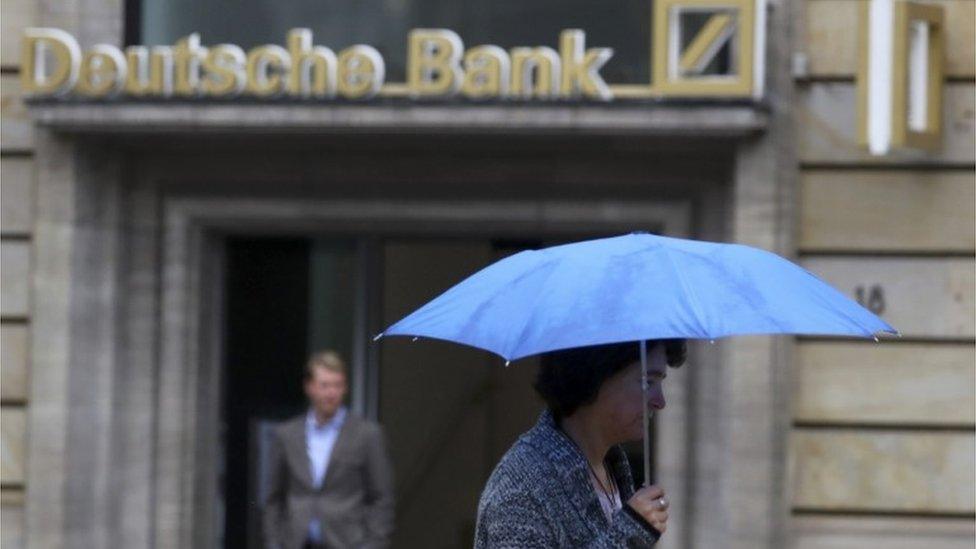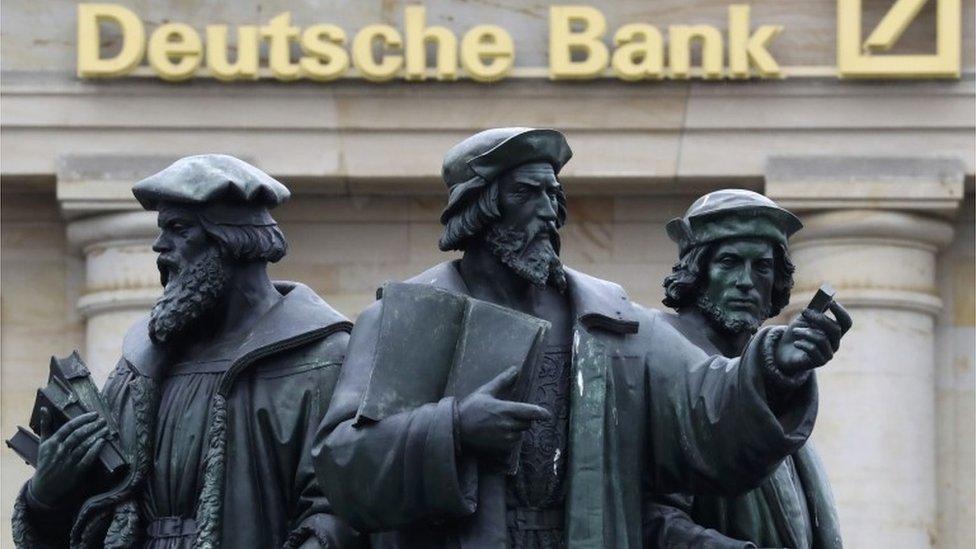What are Deutsche Bank's options?
- Published

Here we go again. Financial markets fretting about the health of eurozone banks.
What is different this time is that the outbreak is centred on the biggest bank in Europe's biggest economy. For decades, Deutsche Bank worked hand in glove with the mighty Bundesbank to prudently finance the German economic miracle.
In the 1990s it became a serious global bank, competing toe to toe around the world with the likes of JP Morgan and Goldman Sachs. But just a few weeks ago, the IMF said that of all the banks big enough to bring the financial system crashing down, Deutsche Bank was the riskiest.
The bank was forced to deny it had sought government help, its share price has collapsed and this giant of world banking is currently worth half as much as Airbnb.
What happened?
Like all banks - it was laid low by the financial crisis and the ultra low interest rates that followed. Profit margins and lending volumes are thin in a sluggish European economy.
But unlike the big US banks and, belatedly, RBS, it did not take an axe to its loan book. It still has €1.6 trillion ($1.79 trillion; £1.38 trillion) of loans outstanding. Only a small percentage of them need to go bad to wipe out the €60bn it has in capital.
It is also facing a whopping fine from US financial authorities for selling risky mortgages. The $14bn demand is likely to be negotiated down but even if it is half that figure, Deutsche Bank will have to raise money.

However, It has a few options before it would even think about turning to the government.
In order of preference:
1. Cash in the attic. It is already selling a stake in a Chinese bank that should raise $4bn and it has a very valuable asset management business that could be sold off.
2. Sugar daddy. It could raise money from a sovereign wealth fund which might like to take a stake in a big-name bank at a knock down price. It could also ask its own shareholders.
3. Go back to the well. Deutsche could sell more shares to existing shareholders. This is not very popular with owners as it dilutes the value of the shares they already have so you would have to sell them new ones at a fairly hefty discount.
4. Burn your creditors. Deutsche has sold €4.6bn of bonds that can be turned into shares - a bail-IN. Bond holders would lose their income and possibly have to write off the value of their investment completely. That is what these bonds are designed for, but in practice Deutsche would be reluctant to do this as it would make it very hard to sell any more of them ever again.
5. In an emergency, break glass. A government bail OUT would be politically unpopular, probably illegal under current rules and would set a precedent for elsewhere in Europe (particularly Italy) which Germany is keen to avoid.
It is still highly unlikely we get to the bottom of this list. Indeed, the German government is reluctant to acknowledge that option five even exists, but a Deutsche Bank bust is unthinkable for Germany and the rest of the financial world. It's got a few troubles ahead but it won't be allowed to go the way of Lehman brothers.